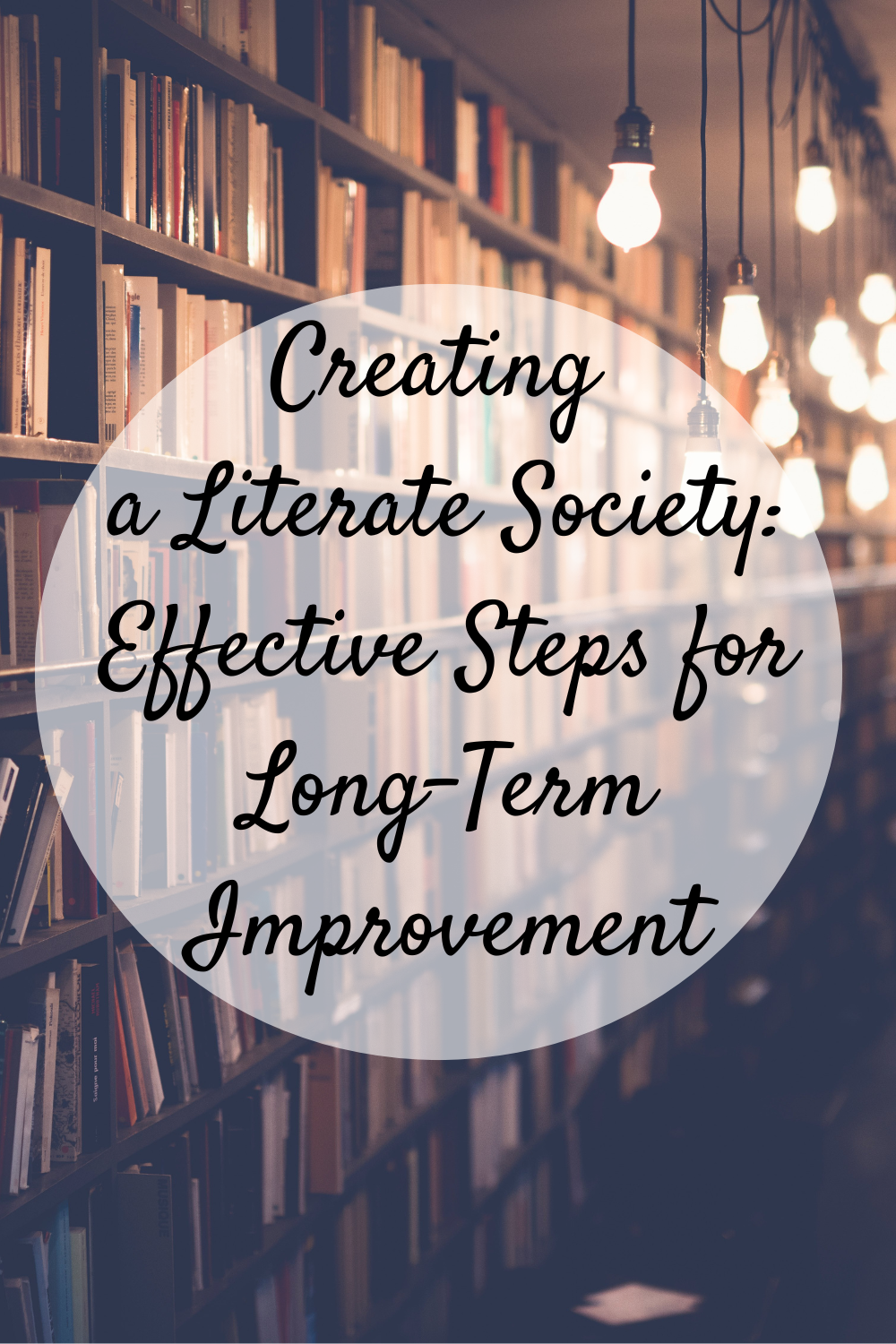
In today’s rapidly evolving world, literacy remains a crucial contribution to societal progress. The ability to read and write not only opens doors to education and employment but also fosters critical thinking. Sadly, many countries still struggle with high illiteracy rates.
Addressing illiteracy requires an interventional response that encompasses the steps needed to create a literate society. Keep reading to learn effective steps to create a literate society.
Invest in Early Childhood Education
One of the most effective strategies for promoting literacy is investing in early childhood education. Early childhood education starts from birth to age 8, focusing more on the child’s preschool years (ages 3-5).
Research consistently shows early exposure to books and language significantly enhances children’s cognitive development. Children who receive quality early education are more likely to perform well in school, graduate, and become lifelong learners.
Providing access to quality preschool programs makes laying a strong foundation for literacy easy. These programs should focus on developing basic reading and writing skills and fostering a love for books and storytelling. Therefore, governments and communities must prioritize funding early childhood education.
Promoting Adult Literacy Programs
For many adults who missed out on education in their youth, an intervention needed response involves targeted literacy campaigns. It addresses the literacy gap among adults who missed out on formal education. These programs are accessible and inclusive, catering to diverse learning needs and schedules.
Effective adult programs begin by identifying target groups and assessing their literacy levels to tailor the curriculum to their needs and busy schedules. Equipping adults with literacy skills can enhance employability, promote health literacy, and encourage active participation in community life.
You can take personalized learning classes to learn how to create a comfortable learning space for adults.
Fostering a Reading Culture
Beyond formal education, cultivating a reading culture is essential for sustaining literacy rates. It enhances literacy rates, enriches lives, and promotes lifelong learning. A reading culture requires the commitment of individuals, families, communities, and institutions.
Public libraries, community reading programs, and initiatives that promote literature can ignite a passion for reading among people of all ages. By making books and reading materials widely available, communities can create an environment where literacy thrives.
Using Technology For Literacy
Technology has become a powerful tool in promoting literacy. It can be a key component of an intervention needed response to improve reading and writing skills across various demographics. Technology can also facilitate distance learning, reaching individuals in remote areas.
Equipping individuals with the skills to navigate and critically evaluate online information is essential for full social participation. E-learning platforms, mobile applications, and digital libraries can make learning more accessible and engaging, especially in remote areas.
Investing in digital infrastructure and providing training ensures that technology enhances rather than worsens existing educational disparities. Embracing these technological advancements can significantly contribute to creating a literate society where everyone has the opportunity to read, write, and thrive.
Collaborative Effort and Advocacy
A collaborative effort to create a literate society involves multiple stakeholders working together towards a common goal. This approach recognizes that literacy is not just the responsibility of schools or government agencies but requires involvement from various sectors of society.
Collaborative efforts unite governments, educational institutions, and NGOs. Governments provide policy support and funding, educational institutions deliver curricula, and NGOs implement on-the-ground programs.
Advocacy, on the other hand, focuses on raising awareness, influencing policy, and mobilizing resources to support literacy initiatives. Effective advocacy campaigns can highlight the importance of literacy, lobby for supportive policies, and attract funding from diverse sources.
Together, these strategies create a powerful mechanism for driving sustainable improvements in literacy rates. Ultimately, these efforts lead to more equitable, empowered, and literate societies.
Final Thoughts
Creating a literate society is about more than just teaching people to read and write. It fosters critical thinking, promotes lifelong learning, and builds the foundation for a more equitable, informed, and prosperous society.
By committing to these intervention needed responses, every individual has the opportunity to unlock their potential through literacy.





Leave a Reply